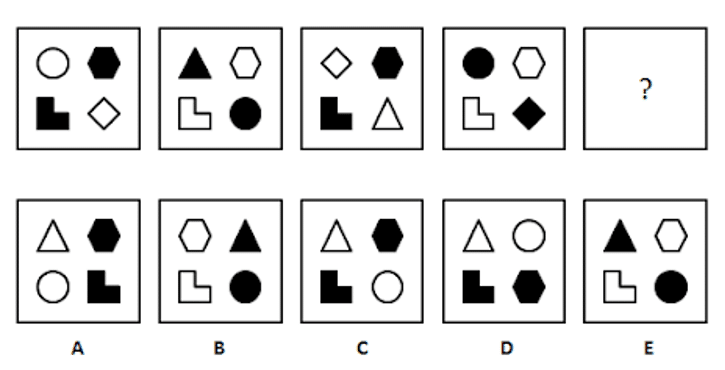The importance of Abstract Reasoning for leaders

The past few years since the COVID-19 pandemic have been difficult for business leaders. While the initial shock may have subsided, its lasting effects continue to shape the business landscape in 2024. Leaders who proactively navigated disruption and protected their organisations are now positioned to thrive in this new environment. Those who struggled to adapt may still be facing challenges.
Abstract Reasoning During Global Business Uncertainties
Even without a crisis such as a global pandemic, leaders today face an increasingly complex and rapidly changing business environment, compared to leaders in previous generations. In a previous blog, we explored some of the challenges faced by business leaders today and the skills they will need to lead their organisations effectively into the future.
In order to solve these new and ever evolving challenges, business leaders can no longer rely simply on their knowledge and experience. They need the ability to quickly make sense of vast amounts of information to solve complex and ambiguous problems. They need to think strategically and conceptually, be willing and able to adapt their approaches, pick up on patterns, identify solutions, and continuously learn new skills.
What Is Abstract Reasoning? Unlocking Fluid Intelligence for Strategic Business Leadership through Psychometric Testing
This ability to think outside of the box, identify patterns or trends in data, and use these to solve unfamiliar problems is known as fluid intelligence, or abstract reasoning. People who have strong abstract reasoning tend to be better at learning new skills, adapting and adjusting their approaches, seeing the big picture, and thinking strategically. It is also one of the cognitive abilities that has been consistently linked to better work performance and leadership effectiveness. Organisations wishing to put themselves in the most competitive position to face the challenges of the 21st century business environment will need leaders who have these abilities.
Abstract Reasoning Defined:
- Abstract reasoning is closely linked to fluid intelligence. It refers to our capacity to rapidly reason with information and solve novel, unfamiliar problems, independent of prior knowledge.
- It encompasses lateral and flexible thinking, logical reasoning, and the ability to generate solutions beyond the obvious.
- Individuals strong in abstract reasoning can use logic to extrapolate rules or relationships to different scenarios.
Relevance of Abstract Reasoning for Leaders:
- Leaders today face an increasingly complex and rapidly changing business environment.
- Abstract reasoning allows leaders to:
- Make sense of vast amounts of information.
- Solve complex and ambiguous problems.
- Think strategically and conceptually.
- Continuously learn new skills.
- Adapt their approaches.
- Identify patterns and trends.
- See the big picture.
Enhancing Leadership Selection: How to Assess Abstract Reasoning Skills with Cognitive Tests
Abstract reasoning can be measured through cognitive ability tests, of which there are many in the market. These tests present candidates with a series of shapes or patterns that follow a set of rules. Candidates are required to work out what these rules are and select the correct image to fill a gap in the sequence (see example below). Abstract reasoning tests can be adjusted to different difficulty levels to make them suitable for a variety of different role levels and vary on the number and complexity of rules applied, as well as the time limit that has been set.

Source: www.graduatewings.co.uk
Assessing Abstract Reasoning:
- Abstract reasoning can be measured through cognitive ability tests.
- These tests present candidates with shapes or patterns that follow specific rules.
- Candidates must deduce the underlying rule and apply it to solve problems.
An increasing number of organisations today are using cognitive ability tests, including abstract reasoning, to identify the best candidates and give themselves an edge over their competitors. A recent report by test provider SHL found that nearly 80% of companies in Australia use pre-hire assessments as part of the selection process for senior managers. We have also noticed a similar trend in the popularity of ability tests among our clients. Last year alone, People Solutions administered over 1300 cognitive ability tests, 26% of which were abstract reasoning, for roles ranging from entry level to C-Suite positions.
Why It Matters:
- In dynamic workplaces, leaders must:
- Think on their feet.
- Rapidly learn new information and skills.
- Form strategies.
- Solve novel problems.
- Abstract reasoning helps leaders navigate uncertainty and adapt to change.
Related Services
Development
Abstract reasoning is a critical aspect of effective leadership our development services can offer strategies for nurturing this skill. See Individual Coaching & Development.
Selection
Our selection services can explore how organisations assess abstract reasoning skills during candidate selection processes, understanding abstract reasoning becomes crucial for something like leadership selection. See Psychometric Testing.



